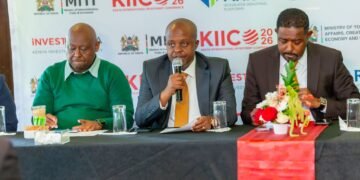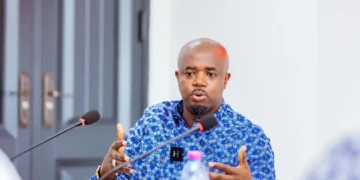The United Nations Educational, Scientific and Cultural Organisation (UNESCO) will launch its Basic Education Equivalency Programme (BEEP) in another 14 provinces.
BEEP is a flagship collaborative initiative between UNESCO, the Ministry of Education and the Ministry of Labour aimed at addressing the issue of high dropout rates at lower secondary levels in Cambodia. It is part of the Decent Employment for Youth in Cambodia programme phase II (DEY II) mainly funded by the Swiss Agency for Development and Cooperation (SDC).
Upon completion of the programme, learners receive a certificate equivalent to Grade 9 accredited by the two ministries.
All stakeholders will organise an official event to launch four new BEEP learning centres in Kandal, Kampong Speu, and Svay Rieng provinces.
According to UNESCO, the programme will be expanded with 26 learning centre in 14 provinces to make sure that more out-of-school youth and marginalised populations in Cambodia have access to basic education equivalency opportunities for further skills training to support them in gaining decent and productive employment.
The event will be chaired by Pich Sophoan, Permanent Secretary of State of the Labour Ministry and attended by officials from ministries, Kandal Governor, the UNESCO Representative to Cambodia, private sector partners, and BEEP facilitators and learners.
“To support its implementation and expand its reach, BEEP has been successful at forging public-private partnerships to advance Cambodia’s national education priorities,” UNESCO said in a press release.
“With support from telecommunications companies to provide ICT equipment and internet services, more out-of-school youth have been able to access the programme anytime, anywhere. Furthermore, the support from private sector partners is critical to advancing digital education in Cambodia to equip Cambodian youth with digital skills, one of the critical skills for the 21st century.”
The Ministry of Education to date has urged all primary and lower secondary level dropouts to enroll in the Basic Education Equivalency Programme or BEEP for free.
“Although the majority of young people have dropped out of school owing to personal struggles including financial strain and other factors, we are urging them to continue their education,” Education Ministry Ros Soveacha said in a previous interview.
“Learners will be guided on how to learn online. Career counselling services will also be provided by facilitators,” he added.
According to indicators from the Ministry of Education, education for primary and lower secondary level students showed a downward trend during the academic year 2021-2022.
Meanwhile, in the latest report of Ministry of Education, there are approximately more than 150,000 primary students who have dropped out of school, while more than 110,000 students in the secondary level dropped out of their studies.






























































